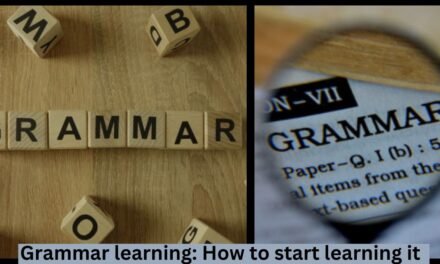Personal pronouns are pronouns that show possession. Personal pronouns are those pronouns that show belonging. Many students got stuck in putting right Personal pronouns. To solve this problem for students, Here is a complete guide to Personal pronouns. Now you will be able to read all of these rules and examples. After reading this, make your sentences for the sake of practice. If you’ll do practice again and again then this will help you be well versed in Personal pronouns.
Personal pronouns
We may say Hari is absent because Hari is ill.
But it is better to avoid the repetition of the Noun Hari and say Hari is absent because he is ill.
A word that is thus used instead of a noun is called a Pronoun {Pronoun means for-anoun.]
A Pronoun is a word used instead of a Noun.
I am young.
We are young.
You are young.
They are young.
He (she, it) is young.
I, we, you, he, (she, it), are called Personal Pronouns because they stand for the three persons.
(i) the person speaking.
(ii) the person spoke to, and
(iii) the person spoken of.
The Pronouns I and we, which denote the person or persons speak-mg, are said to be Personal Pronouns of the First Person
The Pronoun you, which denotes the person or persons spoken to, is said to be a Personal Pronoun of the Second Person. You is used both in the singular and plural.
The pronouns he (she) and they, which denote the person or persons spoken of, are said to be Personal Pronouns of the Third Person. It, although it denotes the thing spoken of, is also called a Personal Pronoun of the Third Person. The Personal Pronouns of the Third Person are, strictly speaking, Demonstrative Pronouns.
Forms of the Personal pronouns:
The following are the different forms of the Personal Pronouns:-
- FIRST PERSON (Masculine or Feminine)
SINGULAR — PLURAL
Nominative — I — We
Possessive — my, mine — our, ours
Accusative — me — us
- SECOND PERSON (Masculine or Feminine)
SINGULAR/PLURAL
Nominative — You
Possessive — Your, Yours
Accusative — You
- THIRD PERSON
SINGULAR — PLURAL
Masculine — Feminine — Neuter — All Genders
Nominative — he — she — it — they
Possessive — his — her, hers — its — their, theirs
Accusative — him — her — it — them
(Note: Two forms of these the forms my, our, your, her, and their, are called Possessive Adjectives because they are used with nouns and do the work of Adjectives; such as:)
This is my book.
Those are your books.
That is her book.
Possessive Adjectives are something called Pronominal Adjectives, as they are formed from Pronouns.
This is his book. (Possessive Adjective)
This book is his. (Possessive Pronoun))
In the following sentences, the words in italics are Possessive Pronouns:-
This book is mine.
Those books are yours.
That book is hers.
That idea of yours is excellent.
The pronoun of the Third Person has three Genders:
Masculine — he
Feminine — she
Neuter — it
It- The Pronoun it is used-
- (1) For things without life; as,
Here is your book; take it away. - (2) For animals, unless we wish to speak of them as male and female; as,
He loves his dog and cannot do without it. The horse fell and broke its leg. - (3) For a young child, unless we wish to refer to the sex; as,
When I saw the child it was crying.
That baby has torn its clothes. - (4) To refer to some statement going before; as,
He is telling what is not true; as he knows it.
He deserved his punishment; as he knew it. - (5) As a provisional and temporary subject before the verb to be when the real subject follows; as It is easy to find fault. [To find fault is easy.]
It is doubtful whether he will come.
You are certainly wrong. - (6) To emphasize the noun or pronoun following; as,
It was you who began the quarrel.
It was I who first protested.
It was at Versailles that the treaty was made.
It is a silly fish that is caught twice with the same bail.
It is an ill wind [that blows nobody good. - (7) As an indefinite nominative of an impersonal verb; as,
It rains.
It snows.
It thunders.
The Pronoun it here seems to stand for no noun whatever, though this can be readily
supplied from the verb. Thus, ‘It rains’ means ‘The rain rains.’
It is so used is called an Impersonal Pronoun. So also the verb rains is here called an
Impersonal Verb. - (8) In speaking of the weather or the time;,
It is fine.
It is winter.
It is ten o’clock.
Since a Personal Pronoun is used instead of a Noun, it must be of the same number,
gender, and person as the Noun for which it stands; as,
Rama is a kind boy. He has lent his bicycle to Govind.
Sita helps her mother with household work. She also does her lesson.
Those beggars are idle. They refuse to work for a living.
Rules to use Personal pronouns
1- When a Pronoun stands for a Collective Noun, it must be in the Singular Number (and Neuter Gender) if the Collective Noun is viewed as a whole; as,
The army had to suffer terrible privations in its march.
The fleet will reach its destination in a week.
The crew mutinied and murdered its officers.
After a few minutes, the jury gave its verdict.
2- If the Collective Noun conveys the idea of separate individuals comprising the whole, the
Pronoun standing for it must be of the Plural Number; as,
The jury was divided in their opinions.
The committee decided the matter without leaving their seats.
3- When two or more Singular Nouns are joined by and, the Pronoun used for them must be Plural; as,
Rama and Had worked hard. They are praised by their teacher.
Both Sita and Savitri are tired; they have gone home.
- But when two Singular Nouns are joined by and refer to the same person or thing,
The pronoun used must of course be Singular; as,
The Secretary and Treasurer are negligent of their duty.
4- When two Singular Nouns are joined by and are preceded by each or every, the Pronoun
must be Singular; as Every soldier and every sailor was in his place.
5- When two or more Singular Nouns are joined by or either…or, neither… nor, the
Pronouns are generally Singular; as,
Rama or Hari must lend his hand.
Either Sita or Amina forgot to take her parasol.
Neither Abdul nor Karim has done his lesson.
6-When a Plural Noun and a Singular Noun are joined by or nor, the Pronoun must
be in the Plural; as
Either the manager or his assistants failed in their duty.
7- When a pronoun refers to more than one noun or pronoun of different persons, it
must be of the first person plural in preference to the third; as,
You and I have done our duty.
You and Hari have idled away your time.
8- Good manners require that we should say-
‘You and I’ not ‘I and you’.
‘You and he’ not ‘he and you’.
‘Hari and I’ not ‘I and Hari’.
‘He and F, not T and he’.
You and I must work together.
You and he must mend your ways.
Hari and I are old-school friends.
He and I can never pull on together.
9-Each of the personal pronouns, I, he, she, we, they, have a different form for the accusative case, namely, me, him, her, us, them. It is a common mistake to use / for me when the pronoun is connected by a conjunction (and, or) with some other word in the
accusative case.
Study the following correct sentences:-
The presents are for you and me (Not me)
My uncle asked my brother and me to dinner…
10- Note that but is a preposition in the following sentence:
Nobody will help you but me.
Take care to use the accusative form after but.










I’m thoroughly captivated with your deep insights and stellar ability to convey information. The knowledge you share shines through in every sentence. It’s obvious that you put a lot of effort into researching your topics, and that effort is well-appreciated. Thanks for providing such valuable insights. Continue the excellent job!
I’m truly impressed with your deep insights and stellar way of expressing complex ideas. Your depth of knowledge is evident in each paragraph. It’s evident that you spend considerable time into delving into your topics, and this effort pays off. Thank you for sharing such detailed information. Continue the excellent job!
I’m truly impressed with your profound understanding and superb way of expressing complex ideas. The knowledge you share clearly stands out in every sentence. It’s obvious that you spend considerable time into delving into your topics, and that effort does not go unnoticed. We appreciate your efforts in sharing such valuable insights. Keep on enlightening us!
I’m truly impressed with your profound understanding and stellar way of expressing complex ideas. The knowledge you share shines through in every sentence. It’s clear that you invest a great deal of effort into understanding your topics, and the results pays off. Thanks for providing this valuable knowledge. Keep on enlightening us!
I do consider all of the ideas you’ve presented on your post. They are very convincing and can definitely work. Nonetheless, the posts are too quick for beginners. May you please lengthen them a little from subsequent time? Thanks for the post.
Terrific work! This is the type of information that should be shared around the web. Shame on Google for not positioning this post higher! Come on over and visit my web site . Thanks =)
Great post however I was wondering if you could write a litte more on this subject? I’d be very grateful if you could elaborate a little bit further. Many thanks!